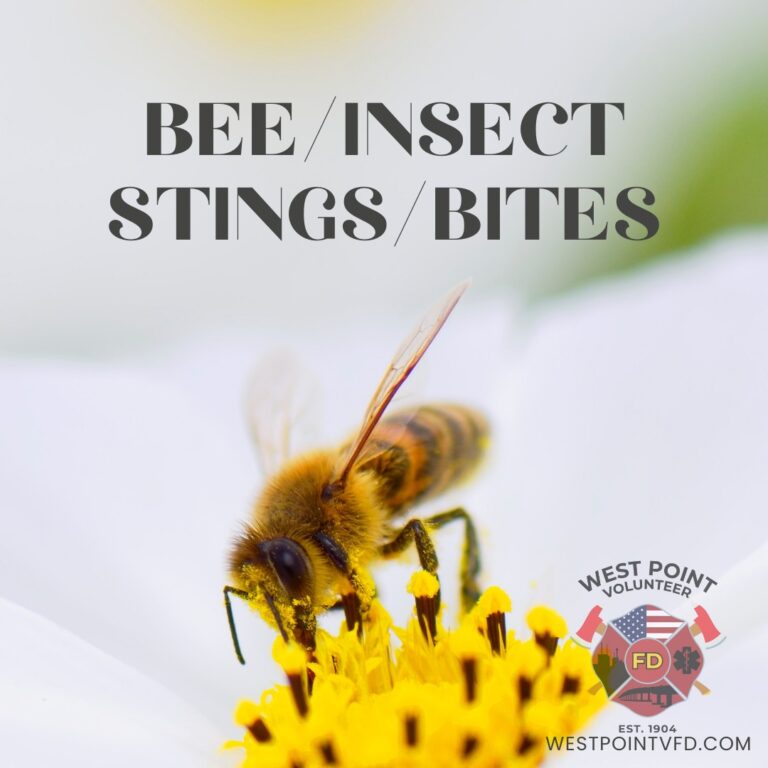Insect bites and bee stings are usually minor annoyances to most, but for people who are allergic to them they can cause serious reactions, including anaphylaxis. Insects that can trigger allergic reactions include honeybees, yellowjackets, hornets, wasps, and fire ants. When they sting, they inject venom into the skin.
A serious allergic reaction is called anaphylaxis. Anaphylaxis (an-eh-fil-AK-siss) can cause different symptoms at different times. A reaction is considered anaphylaxis if someone has any of the following symptoms:
Severe Symptoms
- Trouble breathing
- Repeated vomiting
- Passing out
- Throat tightness
Mild Symptoms
- Hives with vomiting
- Coughing with belly pain
Rapid Developing Symptoms
Anaphylaxis can begin with some of the same symptoms as a less severe reaction, but these can quickly become worse. Anaphylaxis that’s not treated can be life-threatening.
- Wheezing
- Trouble breathing
- Coughing or nasal stuffiness
- Hoarseness or trouble speaking
- Throat tightness
- Stomachache
- Vomiting
- Diarrhea
- Itchy, watery, or swollen eyes
- Hives
- Red spots
- Swelling
- Itching
- Feeling like something bad is about to happen
- Drop in blood pressure, causing lightheadedness or passing out
Treating a Severe Reaction or Anaphylaxis
Severe, systemic reactions require an urgent shot of epinephrine, which will help to reduce the severity of the allergic reaction.
If someone has an epinephrine injection device (EpiPen), they should use it immediately. Then call 911. Epinephrine temporarily reverses the symptoms of a severe allergic reaction. A person with a severe allergy should carry an EpiPen with them at all times.
Anyone experiencing one or more symptoms of anaphylaxis should get to an emergency room as soon as possible, even if they have self-administered epinephrine. Although rare, venom anaphylaxis can cause cardiac arrest within 5-10 minutes of being stung.
While waiting for the emergency services to arrive, the person should lay on their back with feet elevated. Doing so will help to counteract weakness and dizziness by assisting blood flow to the heart.
Tips to Avoid Getting Stung
Those who are allergic to bee stings can take the following precautions to reduce their risk of being stung or bitten when outdoors:
- Avoid walking barefoot while on the grass.
- Children should avoid playing in areas where insects like to be, such as flower beds.
- Avoid drinking from open soda or juice cans and be sure to keep food covered when eating outside.
- Check for insects in drink cups and straws when outside.
- Remain calm and quiet around stinging insects.
- Moving slowly, back away without any arm-waving or swatting.
- Never disturb an insect nest. Have an exterminator get rid of nests near your home.
- When in wooded areas, keep as covered up as possible. Long-sleeved shirts, long pants, socks, and closed-toe shoes can help keep the bugs away. (Loose clothing can allow insects to get between the clothes and skin.)
- Avoid perfumes, scented body products, and brightly colored and flowered clothing because they all attract insects.




